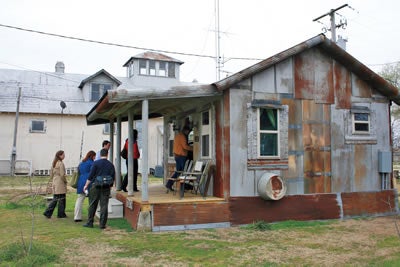In Oxford, Miss., the home of William Faulkner, the courthouse stands gleaming white in the center of a vibrant town, surrounded by upscale boutiques and restaurants. Not far away, in towns across the Delta, the courthouses are shuttered and in ruins, the shops closed down, the squares deserted. It’s that stark juxtaposition that struck Eleanor Simon ’11 when she first visited the Mississippi Delta this past winter term.
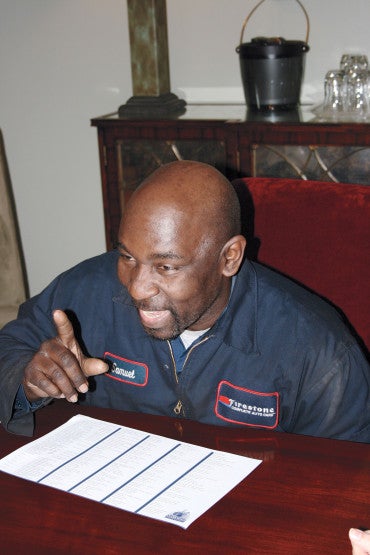
Delta resident Samuel Pollard, one of the many clients assisted by the HLS Mississippi Delta Project, gets some licensing questions answered
“I’ve traveled internationally to a lot of places that are poor,” says Simon, “but the poverty in the Delta is striking. It’s really, really poor.”
Mississippi is ranked dead last among the 50 states on a number of social indicators, including infant mortality, teen pregnancies and children living in poverty. And the Delta region—which also includes parts of Arkansas, Louisiana, Tennessee and other states—is among the hardest hit, with few jobs, failing schools, and an epidemic of obesity and other health issues. It is also a place rich in history, the birthplace of the blues, and home to many renowned writers and musicians. It has its own distinctive beauty, Simon notes, with farmland and flat terrain that stretches for miles.
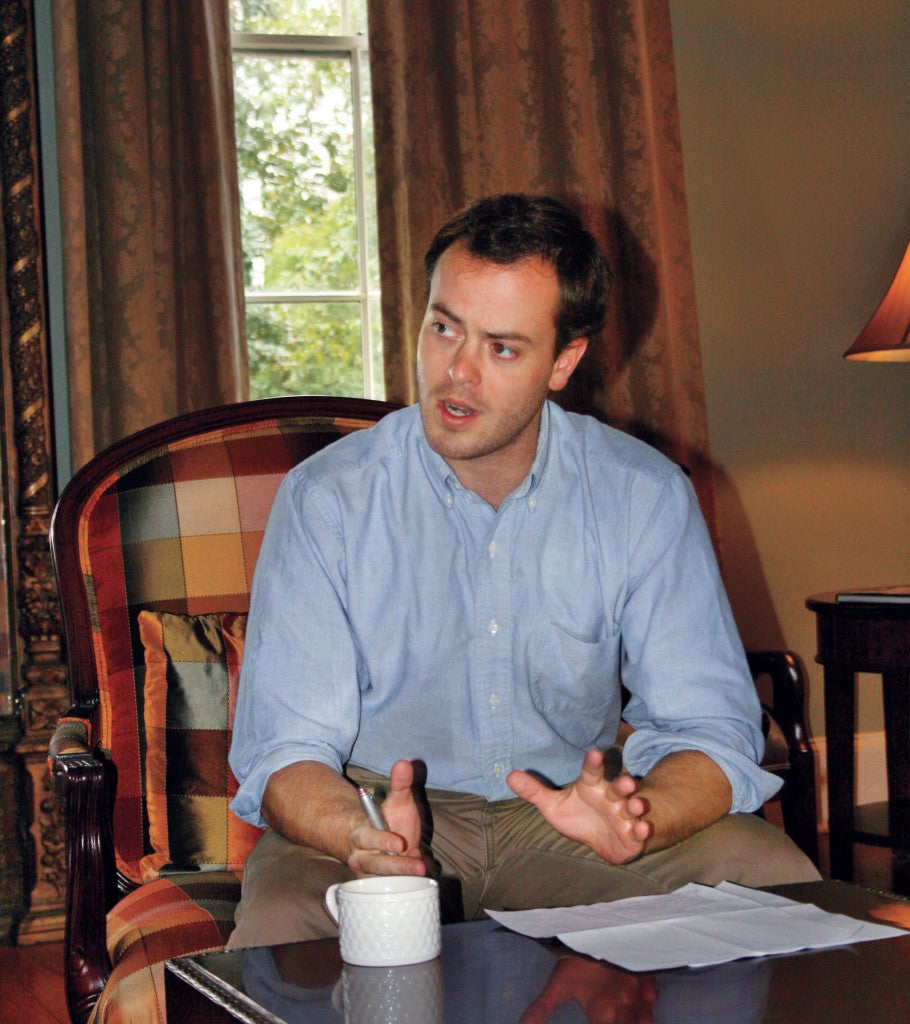
Tom Ferriss J.D. ’11/Ph.D. candidate provides legal advice to owners of a woodworking business
Where others see entrenched problems, the HLS Mississippi Delta Project—an interdisciplinary effort in the HLS Clinical and Pro Bono Programs—sees opportunity for transformation. Since launching less than three years ago, the project has made strides in improving public health, promoting economic development and assisting children in the Delta. So far, more than 100 HLS students, including Simon, have worked on a wide range of efforts related to food policy, financial services for low-income households, education and neighborhood revitalization.
Born from an idea of Herbert S. “Pug” Winokur Jr., the project is funded through the Winokur Family Foundation, which supplements support from the Mississippi State University’s Social Science Research Center.
“It seemed to me that there are so many economic development and health problems in the Mississippi Delta that mirrored problems that exist in many developing countries,” says Winokur, who holds an undergraduate degree, a master’s and a Ph.D. from Harvard. “If we can figure out how to work on health disparities and other issues there, maybe we would not only help those in the Delta but people in other parts of the world.”
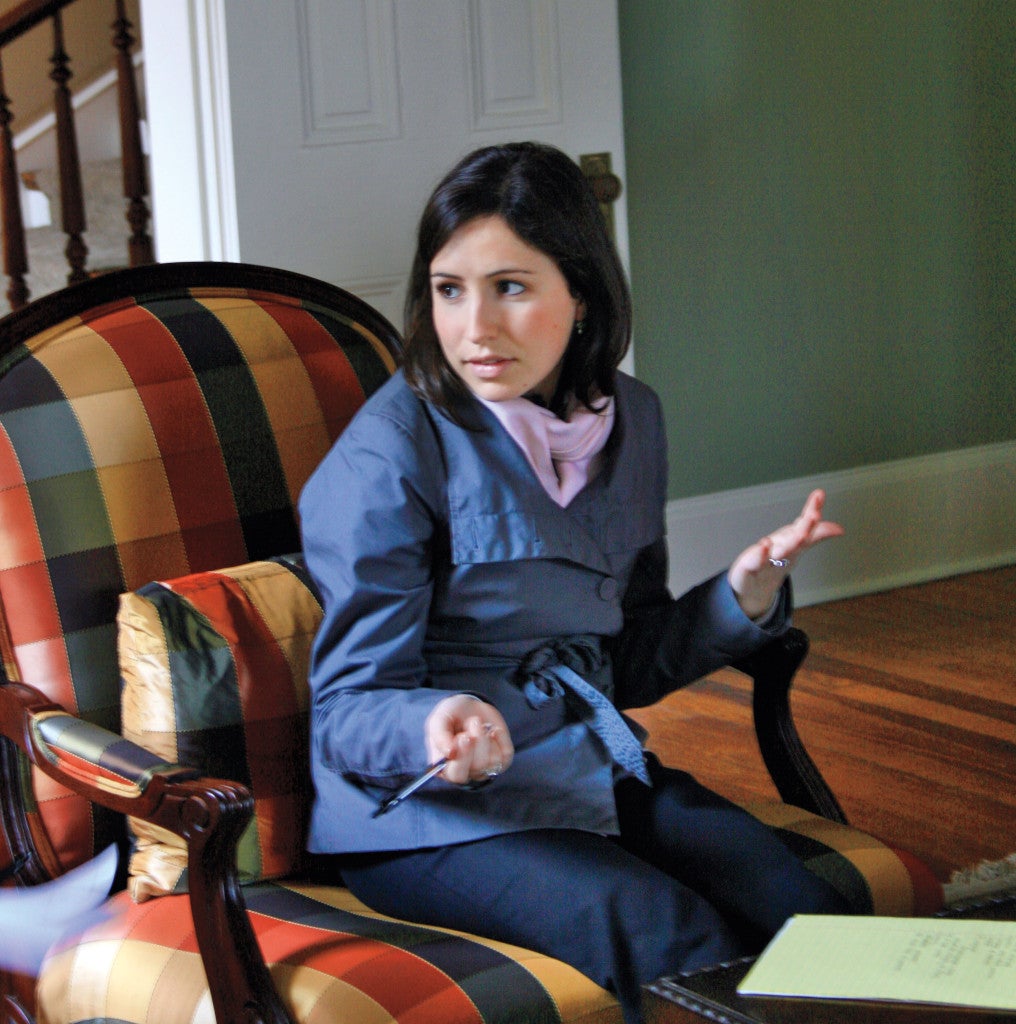
Senior Delta Fellow Emily Broad ’08 helps with questions from entrepreneurs
The project supports a two-year fellowship for an HLS graduate to live in Clarksdale, Miss., to pull together organizations and resources in Mississippi and at Harvard. Emily Broad ’08 was named the first Delta Fellow, and under her leadership, Delta Directions, a consortium of partners in Mississippi and at Harvard, was launched.
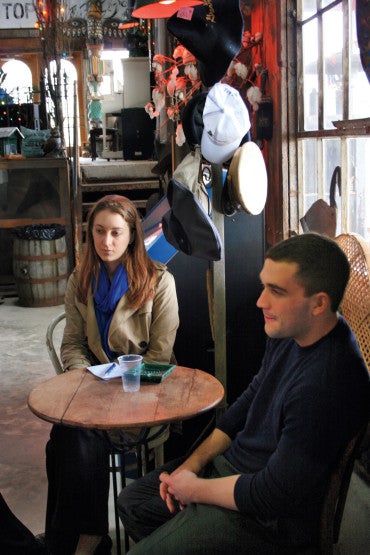
In addition to HLS, it includes Mississippi State University, Delta State University and the University of Tennessee Medical Center as well as the Harvard School of Public Health. A number of HLS clinics and student practice organizations are also participating.
As part of this collaboration, HLS Clinical Professor Brian Price, director of the Transactional Law Clinics, traveled to Oxford last summer to help the University of Mississippi School of Law start the state’s first transactional law clinic. HLS students provided free legal services that have helped small businesses get off the ground, including a husband-and-wife custom woodworking shop, a family homemade soap business, an organic chicken farm and two restaurants.
This March, another group of HLS students traveled to Clarksdale over spring break to work with the current Delta Fellow, Alexis Chernak ’10, and with students from the University of Mississippi School of Law to provide free legal assistance to area musicians. The students met with blues musicians and with a local intellectual property attorney, created a guidebook on the legal rights of musicians and artists, and presented a free training session for musicians about legal issues that was videotaped so others can view it, too.
Broad, now the senior Delta Fellow at HLS working through the Health Law & Policy Clinic, supervises student projects in the Delta, many of which are focused on food policy issues. This year, she helped launch a food policy council in Mississippi and worked with students drafting a bill in Arkansas to protect small farmers from unfair competition. Students have also drafted legislation to exempt farmers markets from the Mississippi sales tax that has been signed into law as well as landing an important regulatory change enabling state farmers markets to accept food stamps.
“People are so appreciative of our work,” Broad says. “I have dozens of emails right now thanking us for all we’re doing.”
